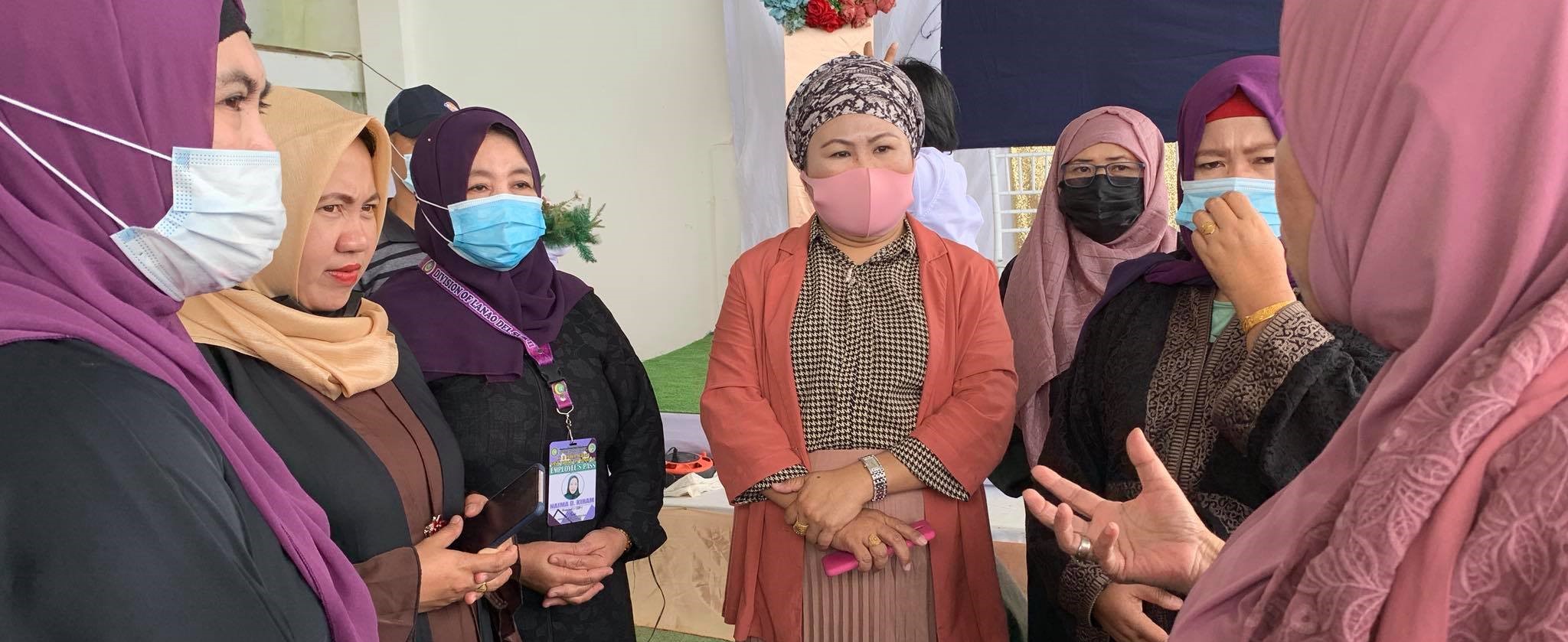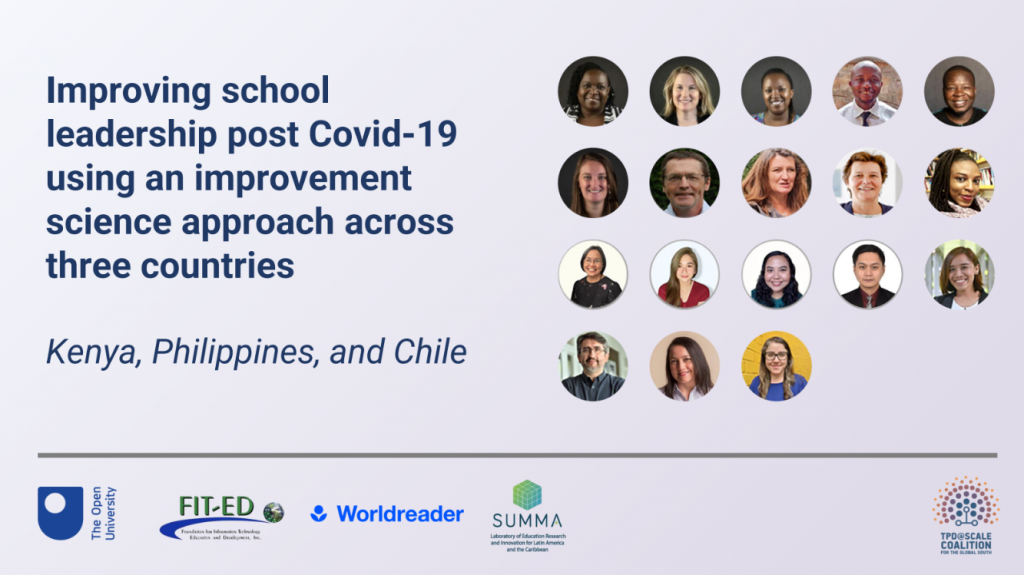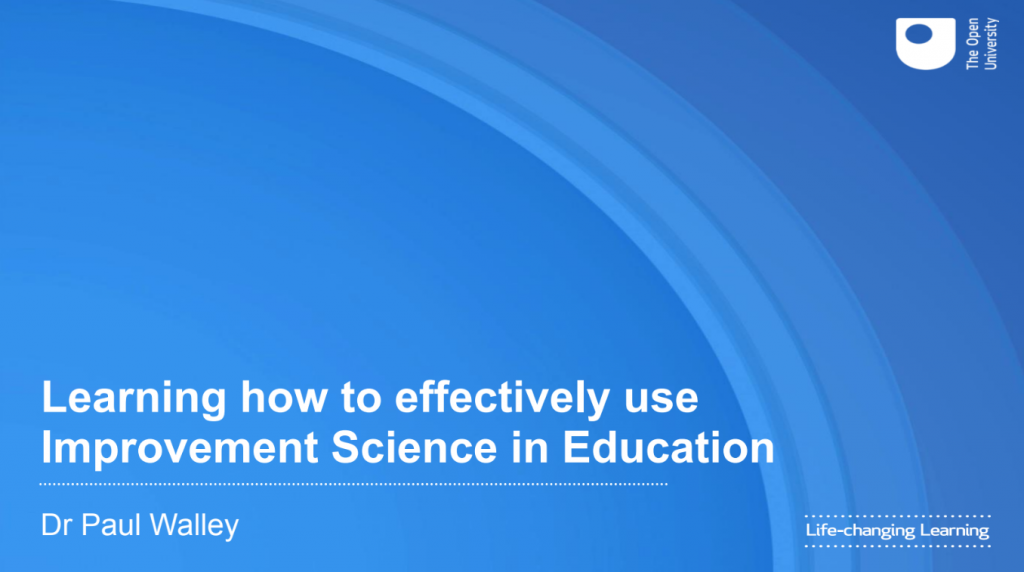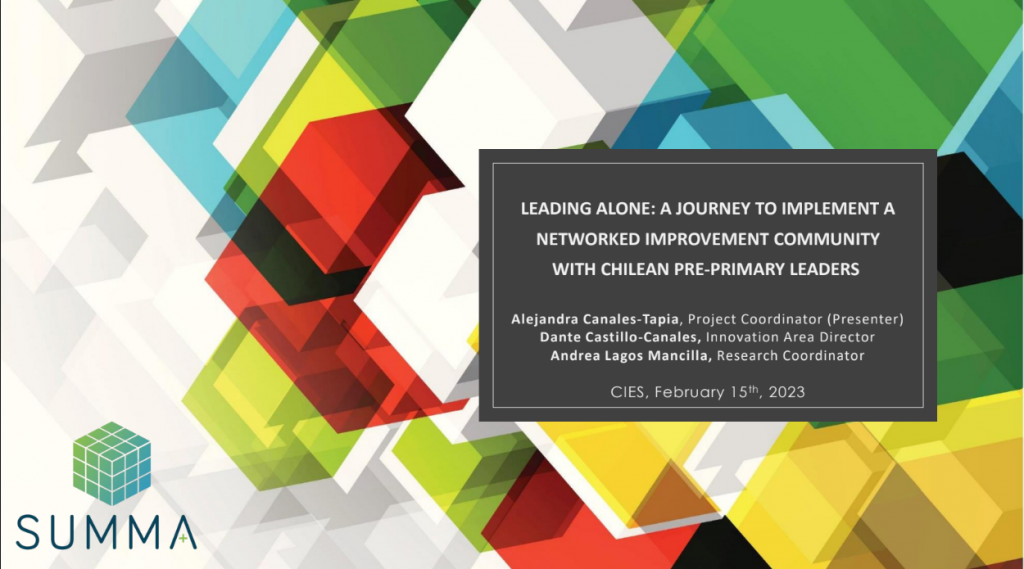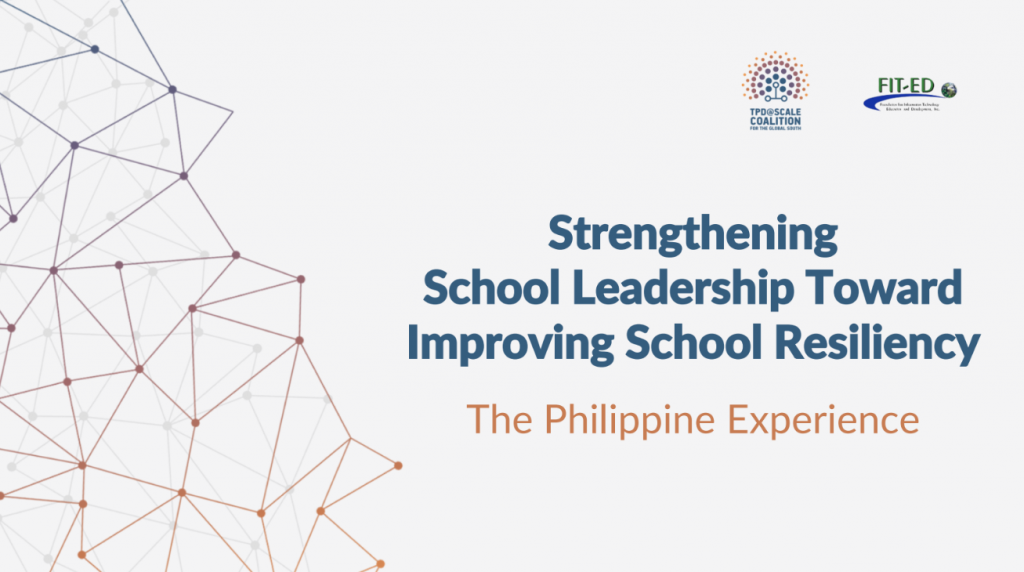The Comparative and International Education Society (CIES) Conference 2023 featured the panel “Improving school leadership post Covid-19 using an improvement science approach across three countries: Kenya, Philippines, and Chile.”
The panel was chaired by Project co-Lead Investigator Freda Wolfenden of the Open University of the United Kingdom (OU, UK ), with presenters from SUMMA Laboratory of Education Research and Innovation for Latin America and the Caribbean, Worldreader, the Foundation for Information Technology Education and Development, and Project co-Lead Investigator Paul Walley, also from OU, UK.
Between March 2021 and August 2022, and with funding from the International Development Research Centre-Canada (IDRC) this Covid response research project explored the development of Network Improvement Communities (NICs) and improvement science with small groups of school leaders (primary or pre-primary) in marginalized communities in three very different contexts: Chile (Santiago), Kenya (Limuru and Mukuru), and the Philippines (Mindanao). Across the three geographies, three different non-profit education organizations worked with school leaders, district officials and researchers and fostered collaboration via NICs to identify problems in current practice and test out solutions.
In all these settings the education system is undergoing rapid change and school leaders are also coping with varied and contextual challenges – climate, conflict, elections, economic instability and so on. The panel summarized key findings and experiences from each country drawing on data generated through the project. It also considers opportunities and challenges to future use of this bottom-up methodology to support school leaders in under-resourced contexts to become more agentive in continuous improvement in teaching and learning, and thereby contribute to more resilient education systems.
When attempting to use Improvement Science in situations where there was little or no prior experience, issues were identified: a. The importance of shared managerial styles across the improvement network, b. Tool-driven activity can distract from the aims of the project, c. Discomfort with empowerment, and d. Problem definition. We found that initial ideas for PDSAs were too ambitious, and often involved “wicked” or complex problems outside the control of the PDDA team. Furthermore, we had to encourage “micro-improvements” to achieve change.
The project NICs took very different forms and ways of working, depending on the conditions of the context, expectations of school leaders in the context and their previous histories of collaboration. In Kenya many of the school leaders had prior experience of peer networks or communities and drew on these experiences in their NIC working. In the Philippines, the NIC working was initially strongly influenced by the Department of Education agenda, but through the project school leaders developed greater agency and autonomy in their collaboration. In Chile, at the start of the project the participating early childhood center principals expressed feelings of isolation and lack of connection with other pre-primary centers and to the wider education system, hence the focus of the NIC activities became the working and building of the NIC itself—their development of a collective identity and mutual collaboration with the new local authority.
Leading alone?: A journey to implement a Networked Improvement Community with Chilean pre-primary school leaders
Adapting an IS approach to school leaders in Kenya post Covid-19. The role of reading data and networked communities to strengthen school leadership.
Strengthening School Leadership Towards Improving School Resiliency: An Improvement Science Approach – The Philippine Experience
If you would like to learn more about the project, Strengthening School leadership Towards Improving School Resiliency, you may view the final project report.

